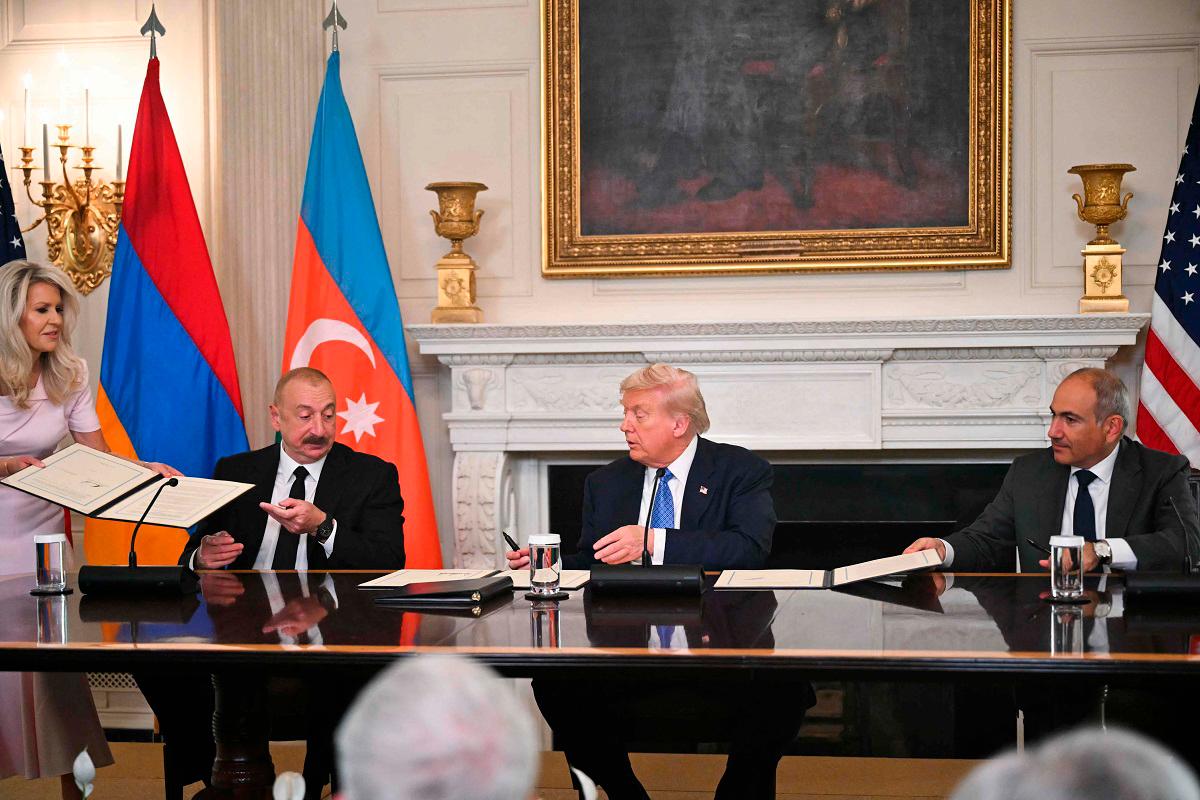YEREVAN: The streets of Yerevan remained quiet under the summer heat as residents gathered in shaded parks to discuss the implications of the newly signed peace accord with Azerbaijan.
The agreement, brokered by US President Donald Trump, aims to resolve decades of territorial disputes between the two Caucasian nations.
Asatur Srapyan, an 81-year-old retiree, cautiously welcomed the deal, stating Armenia had little choice but to accept it.
He acknowledged the country’s limited military strength and lack of strong allies compared to Azerbaijan.
Maro Huneyan, a 31-year-old aspiring diplomat, called the pact acceptable but remained skeptical about Azerbaijan’s commitment to honoring its terms.
She stressed the importance of ensuring the agreement aligns with Armenia’s constitutional principles.
However, Anahit Eylasyan, 69, strongly opposed the deal, particularly the proposed transit zone linking Nakhchivan to Azerbaijan through Armenian territory.
She likened the arrangement to losing control over her own home.
Eylasyan also expressed concern over Armenia’s strained relations with Russia, a traditional ally.
She accused Prime Minister Nikol Pashinyan of making unilateral decisions and offering excessive concessions to Azerbaijan.
Shavarsh Hovhannisyan, a 68-year-old engineer, dismissed the agreement as meaningless for Armenia, calling it a surrender rather than a peace treaty.
He criticized Pashinyan for distancing Armenia from Russia and Iran while placing trust in unreliable negotiations.
President Trump hailed the accord as a commitment to permanent peace, open borders, and mutual sovereignty.
Olesya Vartanyan, a Caucasus researcher, noted the deal could bring short-term stability but warned against long-term optimism given historical tensions.
She emphasized the need for cautious planning in the fragile geopolitical landscape. - AFP









